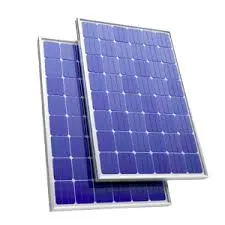Efficiency of Solar Panels in Space Applications and Their Technological Advances
The Efficiency of Solar Panels in Space A Growing Frontier in Renewable Energy
As the quest for sustainable energy sources gains momentum on Earth, outer space presents a unique frontier for harnessing solar power. Solar panels, or photovoltaic cells, installed on satellites, spacecraft, and future space habitats offer a compelling solution for generating power in an environment where sunlight is abundant and persistent. This article explores the efficiency of solar panels in space, the challenges they face, and their potential impact on both space exploration and terrestrial energy systems.
The Efficiency of Solar Panels in Space A Growing Frontier in Renewable Energy
However, operating in space is not without its challenges. One major concern is the intense radiation environment beyond the Earth's atmosphere, which can degrade solar panel materials over time. Spacecraft are subject to exposure from solar flares and cosmic rays, leading to potential damage and a reduction in the efficiency and lifespan of solar panels. To combat these effects, scientists continuously research and develop more durable materials and protective coatings that can withstand the harsh conditions of space.
solar panels in space efficiency

Moreover, the thermal extremes of space present another challenge. Solar panels can experience extreme temperature fluctuations when transitioning from sunlight to shadow, which can affect their performance and reliability. Efficient thermal management systems are essential to maintain optimal operating conditions and prevent potential overheating or freezing.
Despite these challenges, the mounting efficiency and reliability of solar panels in space have profound implications for future missions. The International Space Station (ISS) relies heavily on solar energy, equipped with extensive solar arrays that generate power for experiments, life support systems, and onboard equipment. Moreover, as humanity looks toward deeper space exploration, solar power remains a primary means of energy acquisition. Future missions to the Moon, Mars, and beyond are likely to employ solar panels as a primary energy source, emphasizing the need for continued advancements in solar technology.
Beyond space exploration, the innovations developed for solar panels in space can have a ripple effect on renewable energy technologies on Earth. Technologies like multi-junction solar cells that have been optimized for extraterrestrial conditions could revolutionize terrestrial solar energy, potentially increasing the efficiency and viability of solar power systems worldwide. Additionally, the materials and techniques developed to protect solar panels from cosmic radiation and extreme temperatures may also lead to advancements in resilient solar technology suitable for harsh environments on Earth.
In conclusion, the efficiency of solar panels in space exemplifies the potential of renewable energy technologies to adapt and thrive in diverse environments. As researchers continue to innovate and overcome the challenges posed by the space environment, the benefits extend beyond the cosmos, enhancing solar energy solutions for our own planet. The ongoing exploration of solar power in space not only underscores humanity's quest for sustainable energy but also paves the way for a future where both Earth and space can benefit from renewable energy resources.
-
Unlocking Energy Freedom with the Off Grid Solar InverterNewsJun.06,2025
-
Unlock More Solar Power with a High-Efficiency Bifacial Solar PanelNewsJun.06,2025
-
Power Your Future with High-Efficiency Monocrystalline Solar PanelsNewsJun.06,2025
-
Next-Gen Solar Power Starts with Micro Solar InvertersNewsJun.06,2025
-
Harnessing Peak Efficiency with the On Grid Solar InverterNewsJun.06,2025
-
Discover Unmatched Efficiency with the Latest String Solar InverterNewsJun.06,2025







